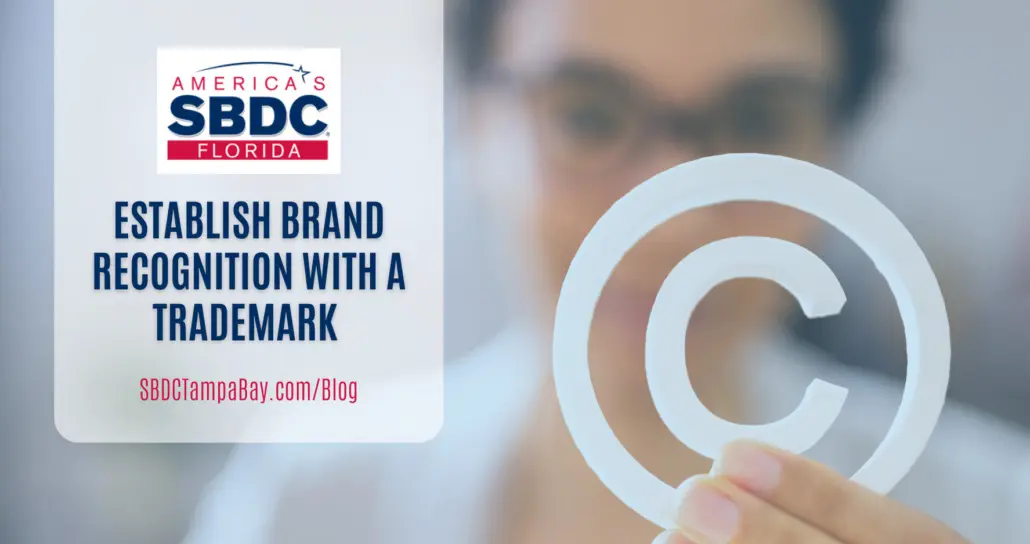Establish Brand Recognition with a Trademark

by Selma Canas | November 21, 2023
A trademark is a legally registered symbol, word, phrase, or design that uniquely represents a specific company, product, or service. It plays a vital role in establishing and safeguarding the distinctive identity of a business. Trademarks are indispensable for creating brand recognition and serve as a shield against others using similar marks that could lead to confusion among consumers. A registered trademark not only fosters trust and credibility with customers but also opens doors for international expansion, as it can be registered globally, further protecting the brand on an international scale.
Trademark Best Practices
Trademark holders can maintain the integrity and strength of their brand by following several best practices, including the following key practices:
- Regularly monitor the market to identify any potential infringements or unauthorized uses of your trademark. Act swiftly and decisively to enforce your trademark rights against infringers.
- To maintain trademark rights, it is essential to use the trademark consistently and correctly. Use the symbol (™ or ®) appropriately to indicate trademark status.
- Trademarks require periodic renewal to remain in force. Stay aware of renewal deadlines and file the necessary paperwork on time.
The Madrid Protocol
The Madrid Protocol is an international treaty, administrated by the World Intellectual Property Organization (WIPO), and has over 120 signatory countries including the United States. This mechanism allows trademark owners to file applications simultaneously with up to 120 countries, eliminating the need to file separately in each country. In the US, trademark owners initiate the application process with the United States Patent and Trademark Office (USPTO). Subsequently, the application is sent to WIPO, which then disseminates it to the trademark offices in the respective countries of interest. This streamlined procedure is not only cost-effective but also offers flexibility and centralized management, making international trademark registration more accessible and efficient for businesses.
The Madrid Protocol is limited to its member countries and each application under this protocol incurs a filing fee. For countries outside this agreement, trademark owners must directly file applications with the respective national trademark offices. To maintain a trademark’s validity, it must be actively used in commerce. Additionally, trademark owners must stay current with maintenance filings at the USPTO to prevent rejection or cancellation of the trademark.
Failure to maintain the trademark in the United States can have serious consequences, potentially leading to the cancellation of not only the US trademark but also all related international filings. Therefore, trademark owners must be vigilant, ensuring they fulfill all necessary requirements and consistently maintain their US trademark to safeguard their global intellectual property rights.
Trademark Search
Thorough research is indispensable when preparing for business growth, especially concerning international trademark registrations. Identifying markets with the highest potential for sales is a pivotal initial step. Focusing on these core countries ensures trademark protection in markets directly relevant to business expansion efforts.
Conducting a comprehensive trademark search in each country of interest is crucial to preempt potential legal complications. Utilizing trademark search tools provided by the USPTO and WIPO can significantly aid in this process. Additionally, it is advisable to seek the expertise of an international trademark attorney. Their knowledge and experience can prove invaluable in navigating the complexities of trademark laws in different countries, helping businesses make informed decisions and ensuring a strong foundation for global expansion.
Recording the Trademark
After successfully registering a trademark with the USPTO, it is crucial for trademark holders to take the additional step of recording the trademark with United States Customs and Border Protection (CBP). This partnership between the trademark holder and CBP serves as a robust defense against counterfeit merchandise entering or leaving the United States.
Through this collaboration, CBP enforces the rights of trademark holders across all official ports of entry in the US. If merchandise infringing on a recorded trademark is identified, CBP has the authority to seize and destroy these counterfeit goods, preventing them from reaching the market.
Trademark Renewal
Importantly, the recordation at CBP must be renewed concurrently with the trademark’s renewal at the USPTO, ensuring continuous protection against counterfeit products. The significance of this partnership is underscored by the staggering numbers: in 2022 alone, CBP seized over 20,000 counterfeit merchandise items. Notably, certain countries, with China at the forefront, are key sources of these counterfeit goods, emphasizing the importance of robust enforcement measures to protect trademark holders and consumers alike.
Ultimately, trademark protection not only preserves the distinctive character of individual businesses but also contributes significantly to the overall integrity of the global marketplace, therefore, it is important that your business is consistently up to date with all trademark regulations.





Selma Canas
Canas, Consultants, International Consultants 2, TampaSpecialties: International Trade, Export Marketing Plans, Market Research Selma Canas is responsible for guiding small businesses through the complexities of developing export marketing and international expansion plans and teaching seminars on basic international trade. She has developed more than 30 Export Marketing Plans during the past six years for local businesses, and participated in trade missions to Brazil, Chile, Canada, and the Dominican Republic. Canas has more than 15 years of experience in sales, marketing and customer service in a variety of industries, including freight forwarding, real estate and advertising. As a co-owner of Restaurant Guide USA, she increased sales and distribution points and tripled the size of the distributed product. As a real estate broker-owner, Canas carved a niche in the Latin American community and had a career sales volume of more than $37 million. Canas earned her bachelor degree in economics from the University of South Florida. She is a NASBITE Certified Global Business Professional and holds an Export and Trade Counseling Certification from the U.S. Small Business Association. Selma earned Florida SBDC at USF Employee of the Year honors in 2016. She is a member of Toastmasters international and is fluent in Spanish and Portuguese.